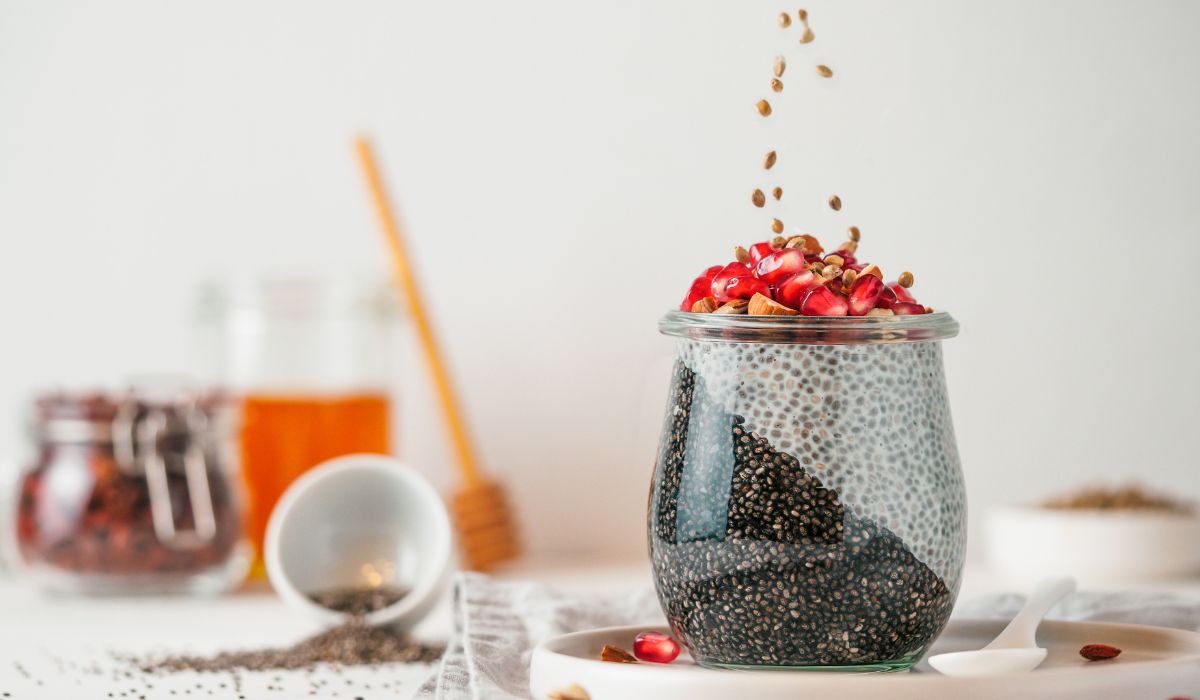Chia seeds, tiny black or white seeds derived from the Salvia hispanica plant, have become a popular superfood in recent years. Known for their impressive nutritional profile and versatile uses, chia seeds have earned their place in the kitchens of health enthusiasts worldwide. In this blog post, we’ll explore the various benefits of chia seeds, how to incorporate them into your diet, and why they deserve a spot in your daily routine.
Nutritional Powerhouse
Despite their small size, chia seeds pack a significant nutritional punch. Here are some of the key nutrients found in a typical serving of chia seeds (about two tablespoons):
- Fibre: Approximately 11 grams, which is 42% of the recommended daily intake.
- Protein: Around 4 grams, containing all nine essential amino acids.
- Omega-3 Fatty Acids: High in alpha-linolenic acid (ALA), an essential fatty acid beneficial for heart health.
- Calcium: 18% of the recommended daily intake, more than what you’d find in a glass of milk.
- Magnesium: 30% of the recommended daily intake, important for muscle and nerve function
- Antioxidants: Help protect your body from free radicals, which can damage cells.
Health Benefits
- Digestive Health
The high fibre content in chia seeds promotes digestive health by supporting regular bowel movements and preventing constipation. The soluble fibre in chia seeds forms a gel-like substance in the stomach, which can help you feel fuller for longer and regulate blood sugar levels. - Heart Health
Chia seeds are rich in omega-3 fatty acids, particularly ALA, which can reduce inflammation and lower the risk of heart disease. They also help in lowering blood pressure and improving cholesterol levels. - Weight Management
The combination of protein, fibre, and healthy fats in chia seeds can aid in weight management. They help to suppress appetite and reduce overall calorie intake by promoting a feeling of fullness. - Bone Health
With their high calcium, magnesium, and phosphorus content, chia seeds contribute to strong bones and teeth. They are especially beneficial for individuals who do not consume dairy products.
- Blood Sugar Control
The fibre and protein in chia seeds help to slow down the digestion of carbohydrates and the absorption of sugar, which can help in maintaining stable blood sugar levels.
How to Incorporate Chia Seeds into Your Diet
- Chia Pudding
Mix chia seeds with your favourite milk (dairy or plant-based) and let it sit overnight in the refrigerator. In the morning, you’ll have a creamy, nutrient-packed pudding that you can top with fruits, nuts, or honey.
- Smoothies
Add a tablespoon of chia seeds to your smoothies for an extra boost of fibre, protein, and omega-3s. They blend well and won’t alter the taste of your smoothie. - Baked Goods
Incorporate chia seeds into your baking recipes, such as muffins, breads, and cookies. They add a nice texture and nutritional boost to your baked goods.
- Salads and Dressings
Sprinkle chia seeds over your salads or mix them into salad dressings for a bit of crunch and added nutrients.
- Hydrating Drinks
Create a hydrating drink by mixing chia seeds with water, lemon juice, and a touch of honey. This is a refreshing way to stay hydrated and benefit from the nutrients in chia seeds.
Chia seeds are a tiny superfood with enormous health benefits. Their high nutrient content, combined with their versatility in the kitchen, makes them a valuable addition to any diet. Whether you’re looking to improve your digestive health, support your heart, or simply add more nutrition to your meals, chia seeds are an excellent choice. Start incorporating chia seeds into your daily routine and unlock the myriad benefits they have to offer.
